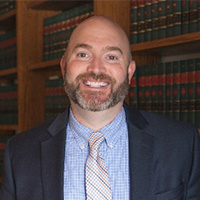 New Kingston White Collar Crime Lawyers, New York
New Kingston White Collar Crime Lawyers, New York
Sponsored Law Firm
-
 x
x

Click For More Info:
-
The Law Offices of Richard L. Cooper, P.A.
848 Brickell Avenue Suite 800 Miami, FL 33131» view mapDWI/DUI, Drug Trafficking, Felony Nationally Ranked Top 40 Under 40
With Richard L. Cooper you can expect a trusted confidant who will work diligently to fully understand your case and determine a road map to help you regain control of your life.
800-756-2781
Not enough matches for New Kingston White Collar Crime lawyer.
Below are all New Kingston Criminal lawyers.
Sponsored Lawyers
1-10 of 22 matches
Divorce & Family Law, Criminal
Tracy Donovan Laughlin is a practicing lawyer serving Otsego County in Cherry Valley, Cooperstown, and Oneonta, New York as well as the surrounding counties with offices located in Cherry Valley and Oneonta. Located 40 minutes or less from the county seats of Otsego, Herkimer, Montgomery, Schoharie, Chenango, and Delaware Counties. Practice has been focused on meeting the needs of families since 1995 in areas of Custody & Visitation, Child Support, Divorce, (both contested and uncontested matrimonials), Adult Guardianships, and Trust & Estates. Experienced Senior Attorney with a demonstrated history of working with adult and child family members in the court system including, but not limited to, victims of family violence and sexual assault, as well as families and individuals plagued by mental illness and addiction. Skilled in Appellate Practice and Trial Practice, as well as Mediation and Dispute Resolution. Strong entrepreneurship professional with a MS focused in Criminal Justice and Planned Change from SUNY Albany - School of Criminal Justice. In practice with husband, Dennis B. Laughlin, for past 12 years.
(more)Criminal, Wills & Probate, Employee Rights, Banking & Finance
With experience serving the public as an Assistant District Attorney, prosecuting minor traffic infractions and serious felony offenses, as public defender, providing legal representation to defendants with respect to both misdemeanor and felony accusations, as attorney for both petitioners, respondents, as well as an attorney for the child(ren), in Family Court and before local child and spousal support magistrates, and as a civil attorney representing clients in various forms of civil litigation, I am proud to announce that I have established my own office in Monticello, New York, dedicated to providing quality legal representation to the community I have been serving since 2006. Whether you are facing a traffic infraction, a criminal charge, or another legal issue, I am committed to providing you with quality representation that is accessible to you, especially in these times of economic difficulty. Please do not hesitate to contact us for a free consultation and to discuss your legal needs.
(more)Immigration, Real Estate, Criminal, Divorce & Family Law, Traffic
Stephen Rockmacher has over 25 years experience concentrating but not limited to Immigration, Real Estate, Criminal and Family law cases. He is focused on providing high quality service and providing individual attention to all your legal needs for the highest client satisfaction.
(more)



 Richard L. Cooper Miami, FL
Richard L. Cooper Miami, FL AboutMiami Attorney at Law
AboutMiami Attorney at Law ServicesCriminal Defense
ServicesCriminal Defense



